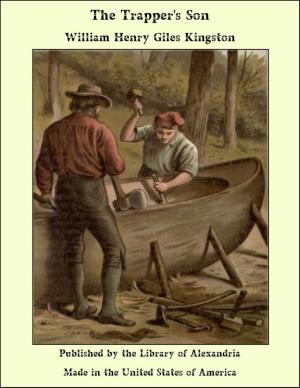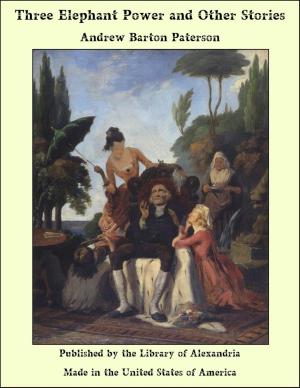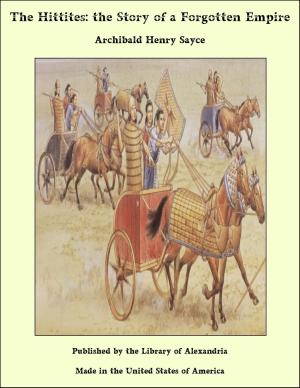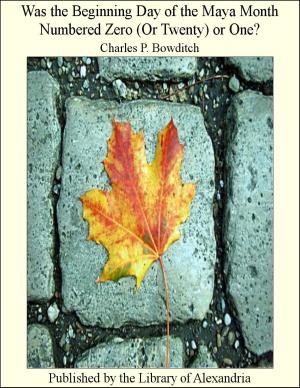The Last American Frontier
Nonfiction, Religion & Spirituality, New Age, History, Fiction & Literature| Author: | Frederic Logan Paxson | ISBN: | 9781465602268 |
| Publisher: | Library of Alexandria | Publication: | March 8, 2015 |
| Imprint: | Language: | English |
| Author: | Frederic Logan Paxson |
| ISBN: | 9781465602268 |
| Publisher: | Library of Alexandria |
| Publication: | March 8, 2015 |
| Imprint: | |
| Language: | English |
The story of the United States is that of a series of frontiers which the hand of man has reclaimed from nature and the savage, and which courage and foresight have gradually transformed from desert waste to virile commonwealth. It is the story of one long struggle, fought over different lands and by different generations, yet ever repeating the conditions and episodes of the last period in the next. The winning of the first frontier established in America its first white settlements. Later struggles added the frontiers of the Alleghanies and the Ohio, of the Mississippi and the Missouri. The winning of the last frontier completed the conquest of the continent. The greatest of American problems has been the problem of the West. For four centuries after the discovery there existed here vast areas of fertile lands which beckoned to the colonist and invited him to migration. On the boundary between the settlements and the wilderness stretched an indefinite line that advanced westward from year to year. Hardy pioneers were ever to be found ahead of it, blazing the trails and clearing in the valleys. The advance line of the farmsteads was never far behind it. And out of this shifting frontier between man and nature have come the problems that have occupied and directed American governments since their beginning, as well as the men who have solved them. The portion of the population residing in the frontier has always been insignificant in number, yet it has well-nigh controlled the nation. The dominant problems in politics and morals, in economic development and social organization, have in most instances originated near the frontier or been precipitated by some shifting of the frontier interest. The controlling influence of the frontier in shaping American problems has been possible because of the construction of civilized governments in a new area, unhampered by institutions of the past or conservative prejudices of the present. Each commonwealth has built from the foundation. An institution, to exist, has had to justify itself again and again. No force of tradition has kept the outlawed fact alive. The settled lands behind have in each generation been forced to remodel their older selves upon the newer growths beyond.
The story of the United States is that of a series of frontiers which the hand of man has reclaimed from nature and the savage, and which courage and foresight have gradually transformed from desert waste to virile commonwealth. It is the story of one long struggle, fought over different lands and by different generations, yet ever repeating the conditions and episodes of the last period in the next. The winning of the first frontier established in America its first white settlements. Later struggles added the frontiers of the Alleghanies and the Ohio, of the Mississippi and the Missouri. The winning of the last frontier completed the conquest of the continent. The greatest of American problems has been the problem of the West. For four centuries after the discovery there existed here vast areas of fertile lands which beckoned to the colonist and invited him to migration. On the boundary between the settlements and the wilderness stretched an indefinite line that advanced westward from year to year. Hardy pioneers were ever to be found ahead of it, blazing the trails and clearing in the valleys. The advance line of the farmsteads was never far behind it. And out of this shifting frontier between man and nature have come the problems that have occupied and directed American governments since their beginning, as well as the men who have solved them. The portion of the population residing in the frontier has always been insignificant in number, yet it has well-nigh controlled the nation. The dominant problems in politics and morals, in economic development and social organization, have in most instances originated near the frontier or been precipitated by some shifting of the frontier interest. The controlling influence of the frontier in shaping American problems has been possible because of the construction of civilized governments in a new area, unhampered by institutions of the past or conservative prejudices of the present. Each commonwealth has built from the foundation. An institution, to exist, has had to justify itself again and again. No force of tradition has kept the outlawed fact alive. The settled lands behind have in each generation been forced to remodel their older selves upon the newer growths beyond.















